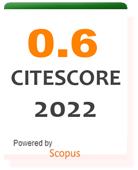Online touchpoints and customer effort: A comparative study of government and local authorities, businesses, and domestic customers
Downloads
Purpose: This study aims to investigate if the online touchpoints (e-mail and mobile app) of the leading energy provider in Malaysia and customer effort were significantly different by customer types, name, government and local authorities, businesses, and domestic users.
Design/Methodology/Approach: The study uses a primary data set of 281 and 1156 respondents with experience of using e-mail and mobile apps. A stratified sampling technique was used in the current study, and data were analyzed using IBM Statistical Package of Social Science (SPSS) 27.0 for Windows. Frequency, descriptive, reliability tests, and one-way analysis of variance tests was applied to the data.
Findings: The findings showed significant differences between one of the variables of e-mail (service quality) and three dimensions of the mobile app (informational, functional, and design quality) with three types of customers. The results also revealed no significant differences between customer types and effort for both online touchpoints.
Conclusion: The findings from this study will benefit the managers or practitioners of a leading energy firm and other firms in the energy sector to strategize and utilize the online touchpoints (e-mail and mobile app) functions to serve their numerous types of customers better.
Research Limitations/Implications: The current study only focuses on a leading energy firm with two types of online touchpoints.
Practical Implications: The Practitioners will be able to enhance the capabilities of online touchpoints and use these tools to efficiently engage consumers and support customer experience, happiness, and loyalty.
Contribution to Literature: The current study contributes to the body of knowledge on online touchpoints and customer effort because past literature revealed a limited study on these areas, particularly in the energy sector.










